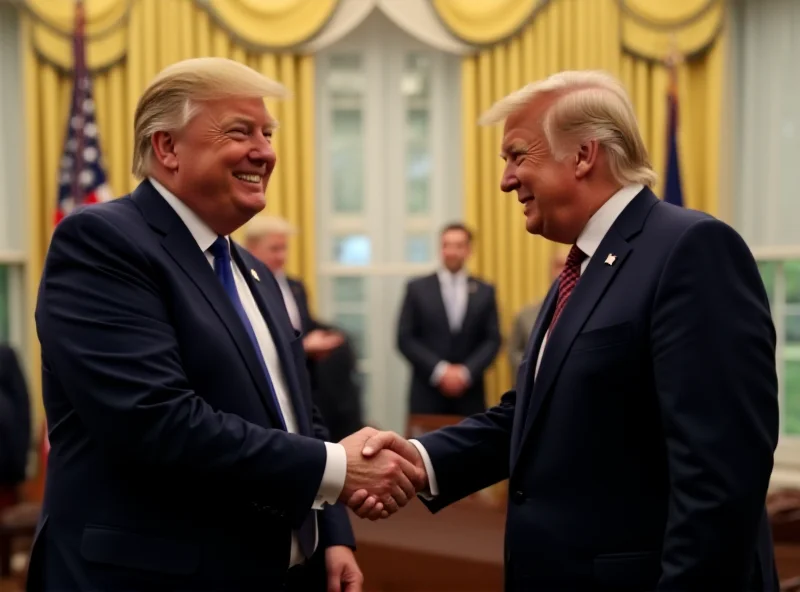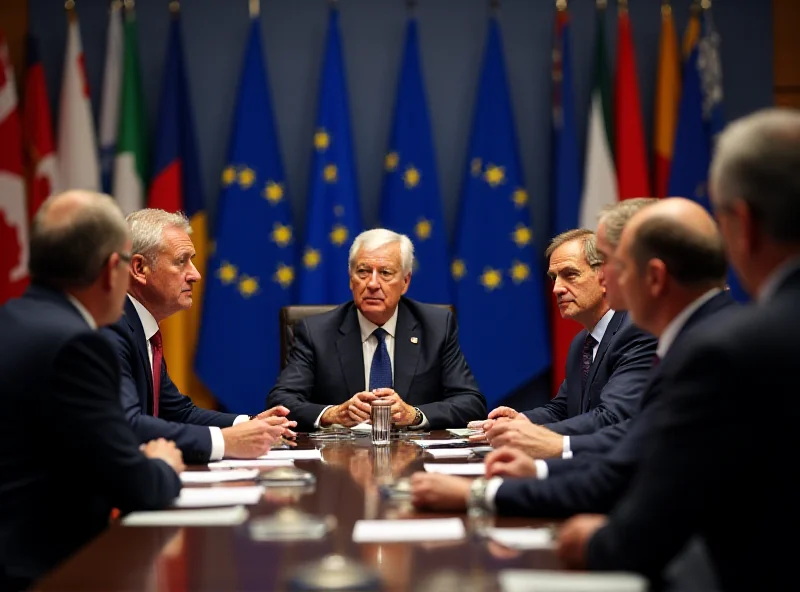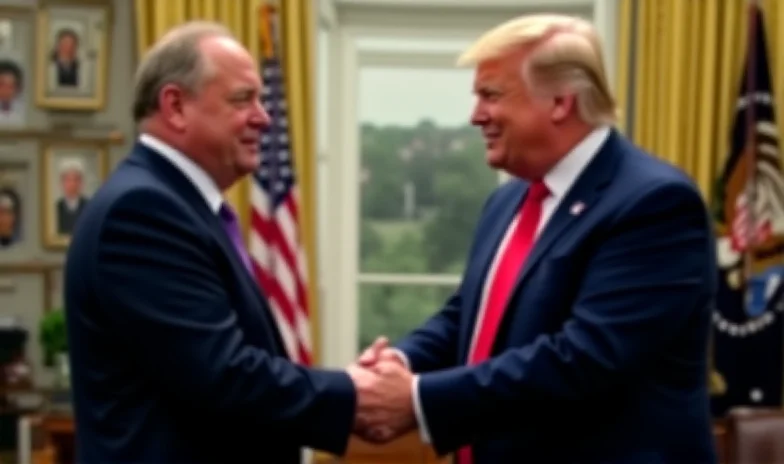Ukraine finds itself at a crucial juncture as international support and alliances appear to be shifting. Recent developments have raised questions about the strength and reliability of Kyiv's partnerships, particularly with NATO and the European Union.
Trump's Stance on NATO and Ukraine
US President Donald Trump recently stated that Ukraine should "forget about" joining NATO. This pronouncement came as he prepared to host Ukrainian President Volodymyr Zelensky in Washington DC for the signing of what was described as a "big agreement."  The implications of this statement are significant, suggesting a potential realignment of Ukraine's security strategy and raising concerns about the future of its relationship with the transatlantic alliance.
The implications of this statement are significant, suggesting a potential realignment of Ukraine's security strategy and raising concerns about the future of its relationship with the transatlantic alliance.
This development adds another layer of complexity to Ukraine's already precarious geopolitical position, as it navigates ongoing conflict and seeks to secure its borders.
EU's Defense Pledges and Disappointments
While the EU has made significant defense pledges, concerns are growing about the actual delivery of promised aid. Plans for a large package of military assistance for Ukraine reportedly "fizzled" ahead of a recent gathering, fueling fears that Kyiv may be left disappointed.
"Manipulation of elections and use of propaganda: this is Moscow's strategy. Tomorrow it could happen elsewhere," warns Georgian leader Salome Zourabichvili.This setback highlights the challenges and potential pitfalls in relying on international commitments, especially when faced with internal political dynamics and competing priorities within the EU.

Concerns Over Russian Influence
Adding to the uncertainty, Georgian leader Salome Zourabichvili has voiced concerns about Russia's broader strategic designs in the region. In a recent interview, Zourabichvili warned that both Georgia and Ukraine are "part of the Russian design," pointing to the use of election manipulation and propaganda as key tactics employed by Moscow. She cautioned that similar strategies could be deployed elsewhere, even within Europe, highlighting a perceived lack of awareness of the threat.
These warnings underscore the need for vigilance and a coordinated response to counter potential Russian interference and safeguard democratic processes across the region.
EU Summit Agreement
Despite these challenges, the EU recently held a summit where, notably excluding Hungarian Prime Minister Viktor Orbán, leaders agreed on a 5-point plan to support Ukraine and enhance defense measures.  This plan includes an "unexpected acceleration" in breaching the Stability Pact to boost defense spending, with Poland expressing support for a French nuclear umbrella. A summit is scheduled for March 11 in Paris to further discuss these initiatives, signaling a renewed commitment to bolstering European security and supporting Ukraine in the face of ongoing challenges.
This plan includes an "unexpected acceleration" in breaching the Stability Pact to boost defense spending, with Poland expressing support for a French nuclear umbrella. A summit is scheduled for March 11 in Paris to further discuss these initiatives, signaling a renewed commitment to bolstering European security and supporting Ukraine in the face of ongoing challenges.
The situation remains fluid, and the coming weeks and months will be crucial in determining the trajectory of Ukraine's alliances and the level of support it receives from its international partners.
